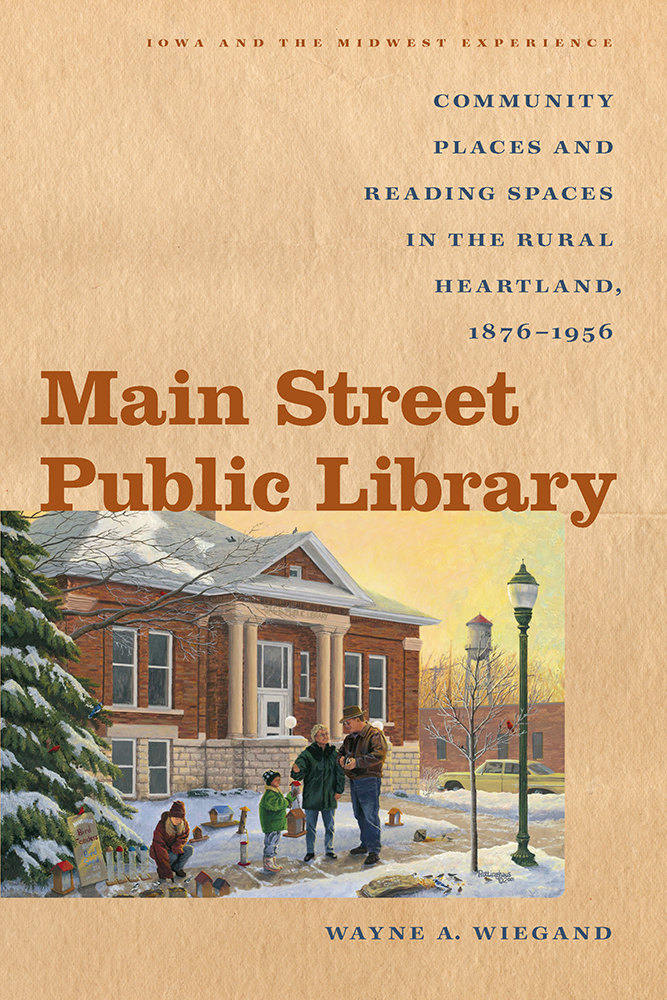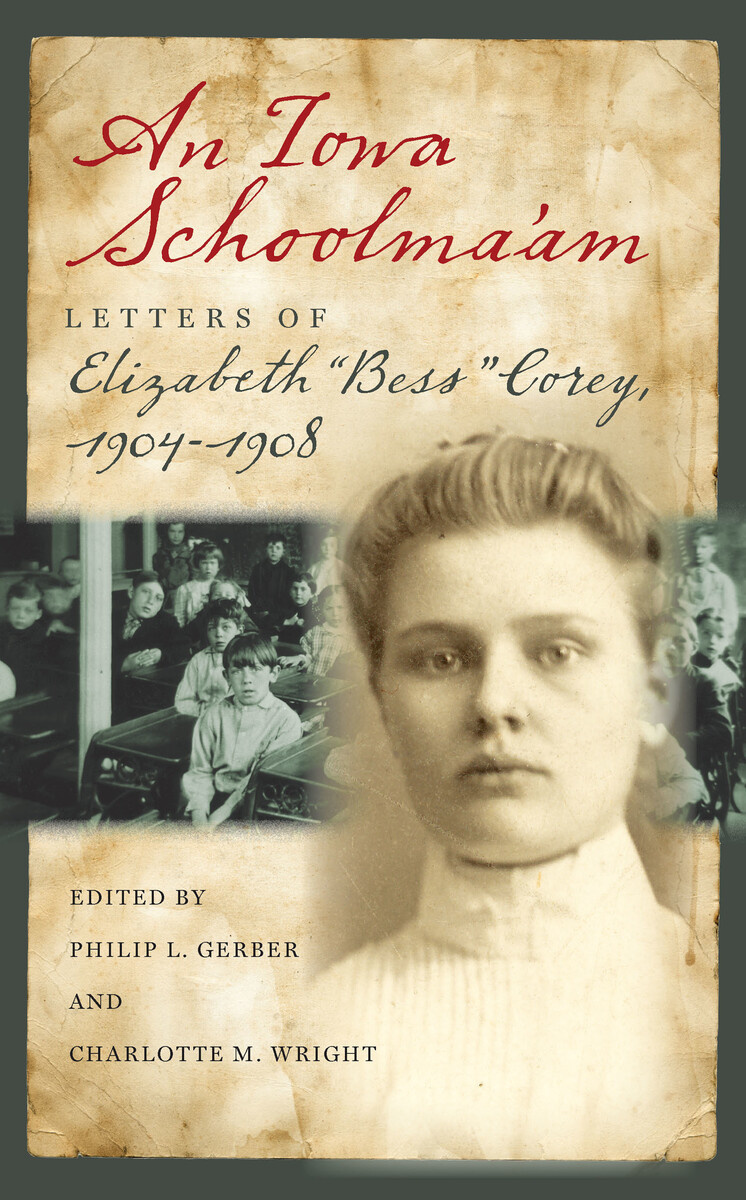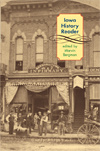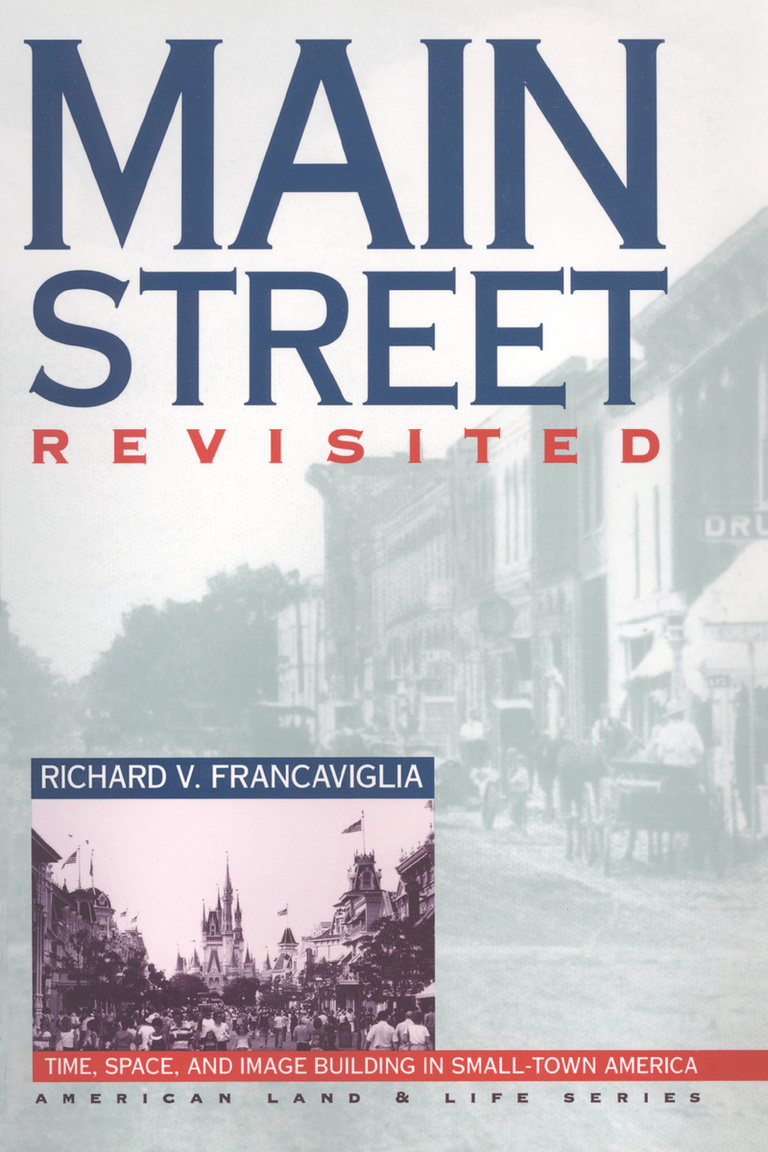The United States has more public libraries than it has McDonald’s restaurants.
By any measure, the American public library is a heavily used and ubiquitous institution. Popular thinking identifies the public library as a neutral agency that protects democratic ideals by guarding against censorship as it makes information available to people from all walks of life. Among librarians this idea is known as the “library faith.” But is the American public library as democratic as it appears to be?
In Main Street Public Library, eminent library historian Wayne Wiegand studies four emblematic small-town libraries in the Midwest from the late nineteenth century through the federal Library Service Act of 1956, and shows that these institutions served a much different purpose than is so often perceived. Rather than acting as neutral institutions that are vital to democracy, the libraries of Sauk Centre, Minnesota; Osage, Iowa; Rhinelander, Wisconsin; and Lexington, Michigan, were actually mediating community literary values and providing a public space for the construction of social harmony. These libraries, and the librarians who ran them, were often just as susceptible to the political and social pressures of their time as any other public institution.
By analyzing the collections of all four libraries and revealing what was being read and why certain acquisitions were passed over, Wiegand challenges both traditional perceptions and professional rhetoric about the role of libraries in our small-town communities. While the American public library has become essential to its local community, it is for reasons significantly different than those articulated by the “library faith.”
“A finely-grained study resting on meticulous research, Main Street Public Library questions the conventional rhetoric of the small-town public library as a foundation for an informed citizenry but strongly affirms its continuing role as a harmonizing community space used by young and old alike. This book is essential for anyone seeking to understand the place of reading—especially reading fiction—in the lives of ordinary Americans, or the history of the distribution of power and resources in small towns, particularly in the Midwest.”—Christine Pawley, director, Center for the History of Print and Digital Culture, University of Wisconsin–Madison
"Wiegand challenges conventional interpretations of the role of public libraries in the community as 'arsenals of a democratic culture,' asserting instead that libraries served as 'uniquely negotiated cultural centers' that reinforced social cohesion, values, and taste at the local level. Based on exhaustive research in primary sources, this study sets a high standard of scholarship. It is a significant contribution to the literature of the history of libraries."—Robert S. Martin, professor emeritus, School of Library and Information Studies, Texas Women’s University
“Any book by America's leading library historian, Wayne Wiegand, is welcome at any time. In an era of peril for many public libraries, especially small and rural ones, it is salutary to be reminded of a time when public libraries were seen as an unalloyed good. Main Street Public Library documents the establishment and maintenance of these centers of community life, without romanticizing. The story that Professor Wiegand tells so well contains much from which we can learn and should take heart.”—Michael Gorman, past president, American Library Association



